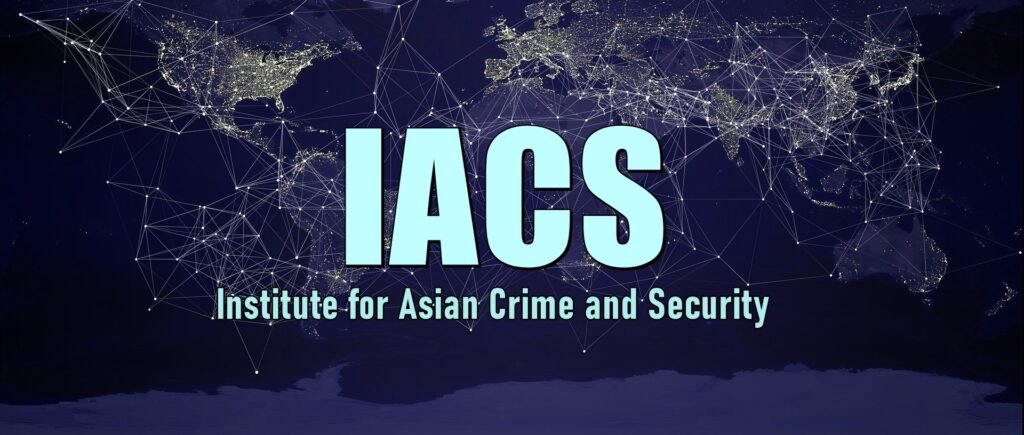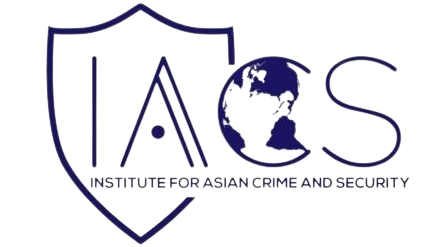As the Taliban have seized control of Afghanistan, most countries have scrambled to evacuate their citizens; take in Afghan refugees, and close their embassies (Cable News Network, 2021). China however decided to keep its embassy in Afghanistan open. This article assesses the potential motivations for doing so.
Notably, China foresaw the Taliban playing a role in rebuilding Afghanistan post-US withdrawal (Reuters ii, 2021). Last month its Foreign Minister Wang Yi met with a Taliban delegation in the Chinese city of Tianjin (ibid), and voiced that remark. So to Beijing, it came as no surprise when the Taliban seized the country from the Afghan government this month. Said meeting also had an air of friendliness and diplomacy (The Associated Press ii, 2021), like any other meeting between diplomats. Yi also stood for an official photo with the Taliban’s senior leader, Mullah Abdul Ghani Baradar (ibid).
The talks themselves suggested a warming of ties between the two parties, and perhaps were a precursor to China’s decision to involve itself in the affairs of the new emirate. This would explain why China would choose to keep open its embassy. Interestingly, Yi stated China “respects Afghan sovereign independence and territorial integrity” (Cheung & Wescott, 2021). With the Afghan state having effectively been ousted, it would seem the abovementioned principle no longer applies – with its territorial integrity having been compromised at the hands of a militant group, which many western nations have openly described as terrorists. However, China still maintains it “always insists on” (Cable News Network, 2021) its principle of “non-interference and of respecting Afghanistan’s sovereignty and independence” (Reuters iii, 2021).
Further, China’s Foreign Ministry recently stated it is ready to develop “cooperative relations with Afghanistan” under the Taliban – also noting Taliban promises that Afghanistan would not facilitate “acts detrimental to China” (Gan & George, 2021). On the one hand, having ‘relations’ is not the same thing as direct ‘intervention’ – rather relations suggest a cooperative, respectful milieu between China and the new rulers of Afghanistan. On the other hand, the Taliban having promised to uphold such a specific interest of China’s suggests China asked them to do so in the first place.
Going back to the Taliban’s promise, China has declared said “acts” as ‘terrorism’ (The Associated Press iii, 2021). Specifically, it fears “Islamist militancy” (The Associated Press ii, 2021), which is something possible in its north-western Xinjiang region. The latter region borders Afghanistan via the Wakhan Corridor, and the Islamist terror group, the East Turkestan Islamic Movement (ETIM) is active there amongst China’s Uyghur Muslim population. Requesting further, China has called on the Taliban to not harbour ETIM members – who pose a “direct threat” to Chinese security (The Associated Press i, 2021). Moreover, China has also expressed hope that the Taliban will “deal resolutely” with them. Overall, this suggests China has already enmeshed itself in Afghan’s internal affairs – influencing who the ruling Taliban maintains relations with, or ideologically aligns with.
ETIM already is somewhat ideologically aligned with the Taliban, considering they share Islamist ideology. The link between the Uyghurs and the Taliban is also evident in the fact some Uyghurs have in the past fought with the Taliban. Therefore it would seem the Taliban is going against its own interests by promising to uphold the interests of China. This is because it is alienating potential Islamist allies in the region. Again, this suggests China has some influence over Afghan internal affairs. This influence corroborates the idea that China is seeking to exercise some level of control in or upon Afghanistan.
The security threat to China does indicate monitoring the situation in Afghanistan is paramount for Chinese security. The latter thus could be a motivation for China maintaining close ties and a physical presence in Afghanistan. This direct relevance of the Afghanistan affairs to Chinese interests helps to explain continued diplomatic relations with the Taliban. Such diplomacy ensures a certain degree of control over the situation. Further, keeping its embassy open allows China to have a listening post in the heart of Afghanistan – giving China first-hand intelligence on the situation as they develop there.
China also has a potential economic stake in Afghanistan. The country needs to be rebuilt and China as a known investor would be the ideal candidate to help it develop. This it can do through direct economic investment, and also through foreign aid and infrastructure projects. The Taliban has also already remarked that it believes China has the means and capacity to “play a very big role in the rebuilding, rehabilitation, reconstruction” (Reuters i, 2021). Further, they have also made bold yet unsubstantiated claims that China has already offered them “sizeable investments in energy and infrastructure projects” (Express Newspapers, 2021) – including roads, highways, electricity, and also regional oil and gas transportation. Assuming this is true, this could explain China’s keenness to maintain a diplomatic presence in the country.
Meanwhile, Afghanistan is a mineral-rich country – with the now ruling Taliban sitting on a potential $1 trillion in mineral deposits (Marlow & Curran, 2021). Such assets, in particular rare earth minerals, China might want to reap the benefits of, so as to help its electronics manufacturing sector. This is proven through its recent investment in copper mining in the country (The Associated Press ii, 2021). At the same time, the Taliban as a new regime is in need of a reliable revenue source. This is because the United States froze $9.5 billion in foreign aid, whilst the International Monetary Fund (IMF) cut off its $500 million financing of the country. The Taliban clearly needs a new source of revenue, and this could be provided through Chinese investment in mineral assets. This would explain China’s newly-forged relationship with the group.
Figure 1

Source: Reuters
Economics aside, it is quite possible that China’s involvement in Afghanistan could merely be a means of affecting real change in a troubled country. The humanitarian inclination of China can be seen in its recent donation of 200 million yuan ($31 million) to the country (BBC, 2021). The recent donation includes food supplies and 3 million Coronavirus vaccine doses. The content of the aid suggests an attempt to endear the people of Afghanistan to China. One can only guess as to why China would be seeking to make itself appealing to a people in another country, but perhaps China is exercising its soft power? The other more likely alternative is China is seeking to stabilise the country before it gets out of control, and before the situation spills over into its borders – and perhaps more importantly, into its sphere of influence. Only time will tell which likelihood is correct.
Bibliography
BBC, 2021. China offers $31m in emergency aid to Afghanistan. [Online]
Available at: https://www.bbc.co.uk/news/world-asia-china-58496867
[Accessed 10 September 2021].
Cable News Network, 2021. Here are the countries that have evacuated their citizens and closed their embassies in Kabul so far. [Online]
Available at: https://edition.cnn.com/world/live-news/afghanistan-taliban-us-news-08-16-21/h_fd06ab29e416e218a688ed55ad37ffb5
[Accessed 27 August 2021].
Cheung, E. & Wescott, B., 2021. Chinese officials and Taliban meet in Tianjin as US exits Afghanistan. [Online]
Available at: https://edition.cnn.com/2021/07/29/china/china-taliban-tianjin-afghanistan-intl-hnk/index.html
[Accessed 29 August 2021].
Express Newspapers, 2021. China offered Taliban ‘sizeable investments’ as Xi looks to cement Afghanistan influence. [Online]
Available at: https://www.express.co.uk/news/world/1482780/china-news-taliban-group-sizeable-investment-us-withdrawal-infrastructure-joe-biden-spt
[Accessed 27 August 2021].
Gan, N. & George, S., 2021. For China, the return of the Taliban poses more risk than it does opportunity. [Online]
Available at: https://edition.cnn.com/2021/08/16/china/china-afghanistan-taliban-mic-intl-hnk/index.html
[Accessed 10 September 2021].
Marlow, I. & Curran, E., 2021. China Eyes Afghanistan’s $1 Trillion of Minerals With Risky Bet on Taliban. [Online]
Available at: https://www.bloomberg.com/news/articles/2021-08-24/china-s-eyes-1-trillion-of-minerals-with-risky-bet-on-taliban
[Accessed 27 August 2021].
Reuters i, 2021. China can contribute to Afghan development -Taliban spokesman. [Online]
Available at: https://www.reuters.com/world/asia-pacific/taliban-spokesman-says-china-can-contribute-afghanistans-development-state-media-2021-08-19/
[Accessed 27 August 2021].
Reuters ii, 2021. China says Taliban expected to play ‘important’ Afghan peace role. [Online]
Available at: https://www.reuters.com/world/china/taliban-delegation-visits-china-taliban-spokesperson-2021-07-28/
[Accessed 27 August 2021].
Reuters iii, 2021. China and Russia show common front on Afghanistan. [Online]
Available at: https://www.reuters.com/world/chinas-xi-russias-putin-discuss-afghanistan-state-media-2021-08-25/
[Accessed 27 August 2021].
The Associated Press i, 2021. China blames US over Afghanistan, but says will work with it. [Online]
Available at: https://apnews.com/article/china-afghanistan-80b6d1b2d880aac25542b2efa5820be5
[Accessed 27 August 2021].
The Associated Press ii, 2021. China’s ties to Taliban warm ahead of US leaving Afghanistan. [Online]
Available at: https://apnews.com/article/china-taliban-1e40c629c150505a107b2e05c3a9b0cc
[Accessed 27 August 2021].
The Associated Press iii, 2021. China both worries and hopes as US departs Afghanistan. [Online]
Available at: https://apnews.com/article/joe-biden-business-china-afghanistan-2079e85db59e3242ce6e869fe0a9d4e3
[Accessed 27 August 2021].
Featured image credit: Wikimedia Commons
About the author: Leanne Thomas is an intern with the IACS. She has Bachelor’s in International Relations with Combined Studies from Richmond, The American International University in London, and is currently studying for a Master’s in Intelligence Studies from Brunel University, London. She has a background in analysis and has a keen interest in the Middle East.








